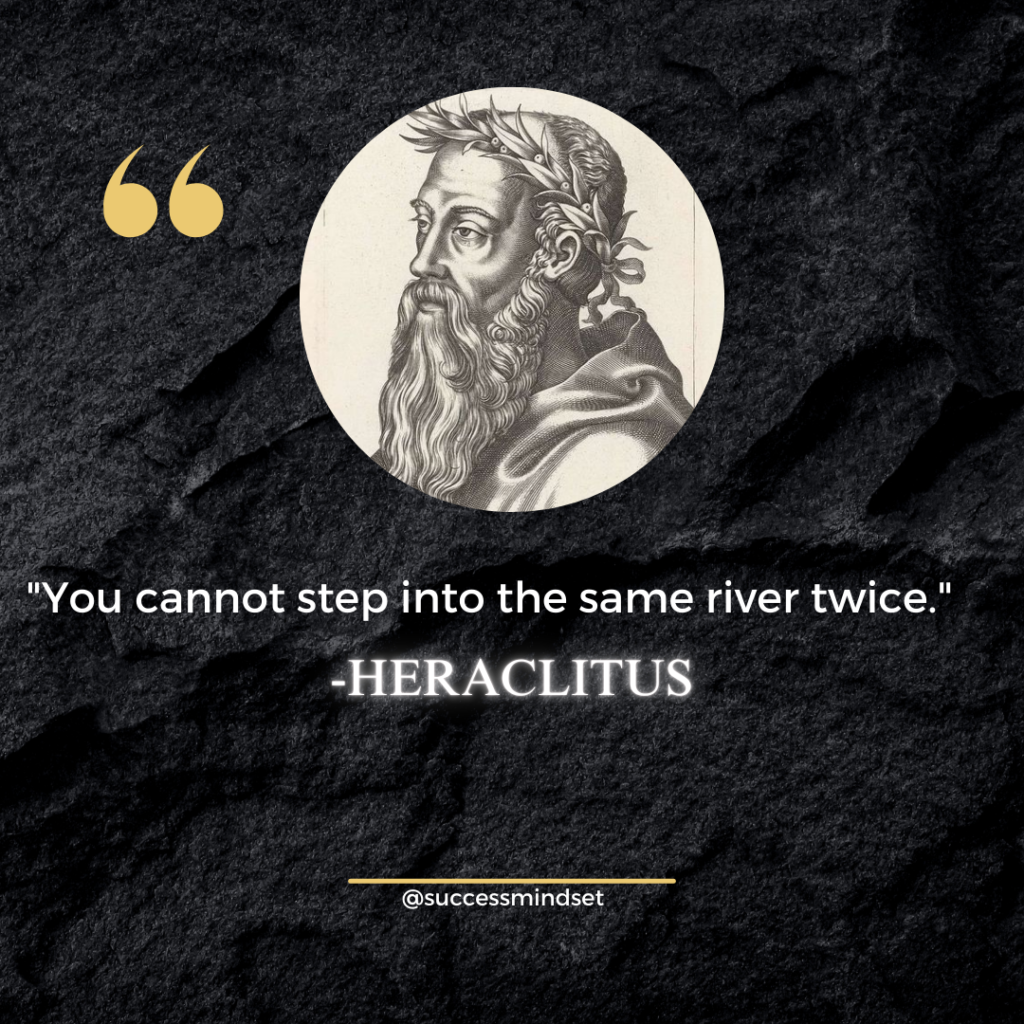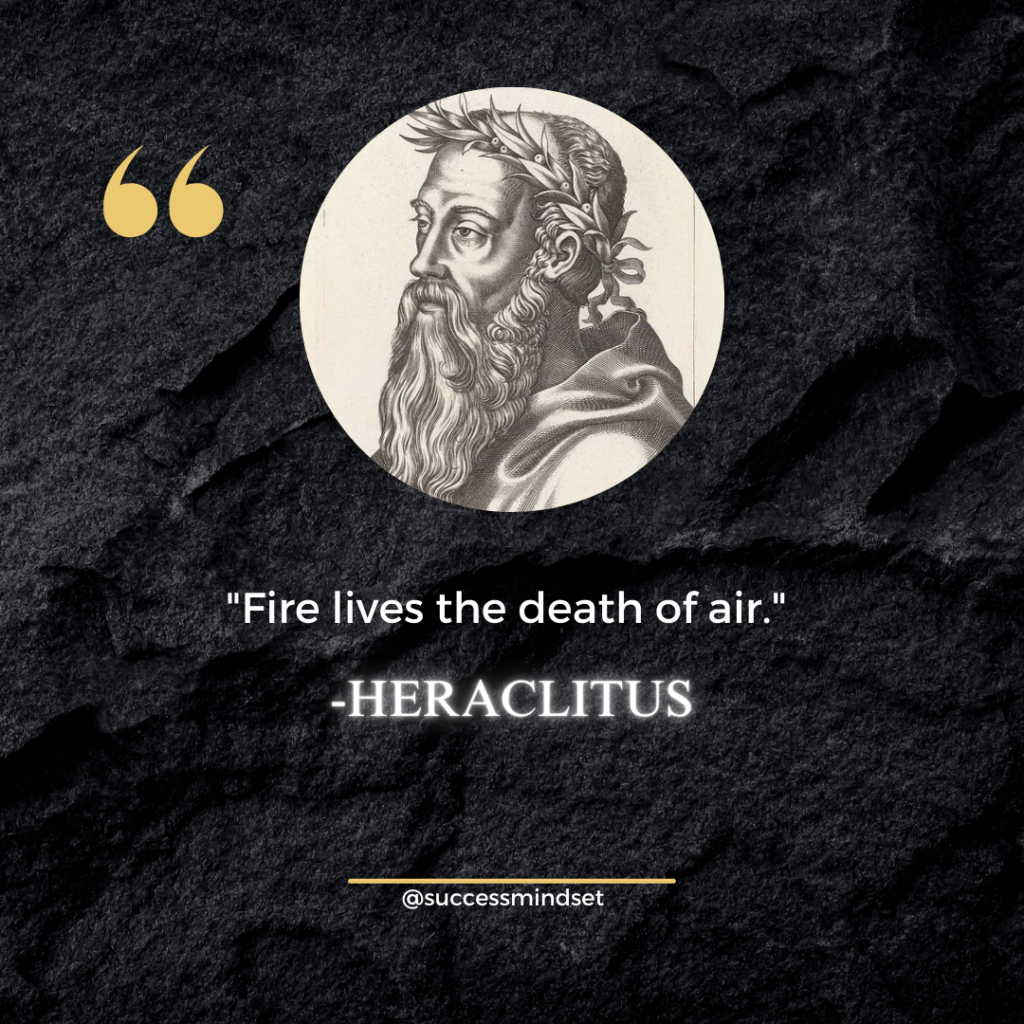Who Was Heraclitus?
Heraclitus, a pre-Socratic philosopher from Ephesus (modern-day Turkey), is often called the “Weeping Philosopher” because of his contemplative nature. His thoughts revolved around change, contradiction, and the unity of opposites, making him one of the most profound thinkers of his time.
Top 10 Most Powerful Heraclitus Quotes
- “You cannot step into the same river twice.”

- “War is the father of all things.”

- “The way up and the way down are one and the same.”

- “Eyes and ears are poor witnesses to men.”

- “The sun is new every day.”

- “What was scattered gathers.”

- “Much learning does not teach understanding.”

- “Opposition brings concord.”

- “Fire lives the death of air.”

- “All things flow, nothing abides.”

You will also like our inspiring article on Thales of Miletus Quotes with Images to Inspire Wisdom
Why Are His Quotes So Influential?
Heraclitus’s aphoristic sayings, full of depth and brevity, continue to inspire philosophers, scholars, and anyone seeking deeper meaning in life. They resonate because they capture the dynamic essence of existence.
If you came this far continue your journey with our more Inspiring Quotes
Conclusion
Heraclitus’s philosophy challenges us to embrace the ever-changing nature of life. His wisdom, rooted in paradox and balance, remains as relevant today as it was centuries ago.
FAQs
1. What is Heraclitus’s most famous quote?
“You cannot step into the same river twice” is widely regarded as his most iconic saying.
2. How did Heraclitus influence modern philosophy?
His ideas on change and opposites shaped thinkers like Nietzsche, Hegel, and the existentialists.
3. What does Heraclitus mean by Logos?
Logos refers to the universal reason or principle that orders the cosmos.
4. Why is Heraclitus called the “Weeping Philosopher”?
He is said to have been deeply reflective and melancholic about human nature and life.
5. How can Heraclitus’s philosophy be applied today?
By embracing change and understanding the interconnectedness of life, we can navigate challenges with grace.
